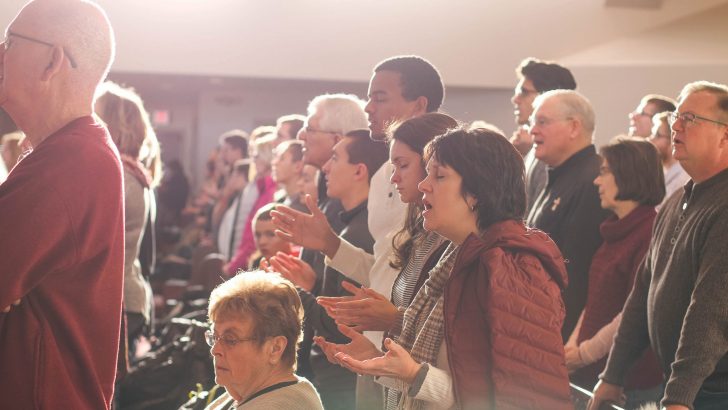A Parent’s Perspective
At the 49th International Eucharistic Congress in 2008 in Quebec, Canada, Pope Benedict XVI spoke passionately via satellite about the Eucharist as “our most beautiful treasure” and “the sacrament per excellence”, introducing us early into eternal life. The theme of the congress that year was ‘The Eucharist, gift of God for the Life of the World’ which Pope Benedict said contains the whole mystery of our salvation. He spoke of the Second Vatican Council referring to the Eucharist as the source and summit of the action and of the life of the Church.
Urging a commitment to a renewed Eucharistic catechesis, he encouraged Catholics to study the great ‘Mystery of Faith’ that we proclaim at every Mass suggesting Vatican Council’s Sacrosanctum Concilium as a source of knowledge in this task. Pope Benedict XVI said that it’s by receiving the Body of Christ that we get the strength of unity with God and with one another.
In his Quebec homily, the Pope reminded the congregation that the Eucharist is not “a meal among friends”.
Again he referred to the rich teachings of the Second Vatican Council which tell us that: “Every liturgical celebration, because it is an action of Christ the priest and His Body which is the Church, is a sacred action surpassing all others; no other action of the Church can equal its efficacy.”
Sometimes the way we teach our children about Mass and the Eucharistic is lacking compared to how we challenge and advance their understanding in areas connected to science or politics or numerous other areas. Many children refer to the “holy bread” with no idea that the bread and wine offered by Christ at the Last Supper literally became his body and blood and that this miracle is repeated at every single Mass since. Sadly, many in the Government and in State organisations viewed Mass and the Sacraments as similar to many non-essential activities like a soak in the jacuzzi in your local gym or a trip to the cinema which we could live without for another while. We can’t blame them for not having the knowledge that we ourselves may lack, seeing the Mass as mostly a community gathering which could be replicated by taking part in a Zoom meeting or touching base with neighbours by engaging in a game of street Bingo. The YouCat, the Youth Catechism of the Catholic Church is a great resource for parents who struggle to even begin to teach their children about the Eucharist. I love its layout, the user-friendly texts and how the little extra quotations on the side of each page sum up points very succinctly. Again, Pope Benedict, then Cardinal Joseph Ratzinger, has a great way with words telling the young readers that the liturgy “is never a mere meeting of a group of people, who make up their own form of celebration…Through our sharing in Jesus’ appearing before the Father, we stand both as members of the worldwide community of the whole Church and also of the communion of saints”. He goes on to say: “Yes, in a certain sense this is the liturgy of heaven.”
We have to constantly work to retain a sense of the sacred, something which hasn’t been easy over the past few months during the Covid-19 lockdown. There have been online Masses, amazing efforts to organise great talks and internet conferences, encouraging online messages from priests, bishops and pastors but, as a Catholic mother, I could see the increasing disconnectedness, sadness and spiritual hunger in my own family. As another great quote in the YouCat says, this time from the rule of St Benedict: “Nothing may have priority over the liturgy.”
For parents who face a battle every day, not only to retain their children in the Catholic faith, but to keep their faith relevant in their lives with so many other influences drawing them in different directions, it’s been particularly tough. Question 166 in the YouCat asks: “Why does the Church celebrate the liturgy so often?”
In the answer one line stands out stating emphatically that just as we breathe air to stay alive, so too the Church lives and breathes by celebrating the liturgy. In a homily last April, Pope Francis spoke of his serious concerns about the faithful not being able to come together as a community to celebrate Mass or to receive the sacraments saying that one’s relationship with Jesus is intimate and personal but it is also in a community. I think it is a major worry, not only for our children but for ourselves, that, as Pope Francis warned, our relationship with God would be seen as something “just for myself, detached from the people of God”. He pointed out that in the Gospels, Jesus’ disciples always lived their relationship with the Lord as a community.
The YouCat tells us of the brave martyr, Saturninus who, on cross-examination after accusations of taking place in the forbidden assembly on Sunday proclaimed: “Without the Sunday Eucharist, we cannot live. Do you not know that the Christian exists for the Eucharist and the Eucharist for Christians?” The Eucharist has priority in the life of the Church and of the individual because here we fly directly into the arms of Jesus and when we let him come close to us, he teaches us, feeds us, changes us, heals us and becomes one with us in the Holy Sacrifice of the Mass.


 Maria Byrne
Maria Byrne Photo: Angelica Mendoza / Cathopic
Photo: Angelica Mendoza / Cathopic 